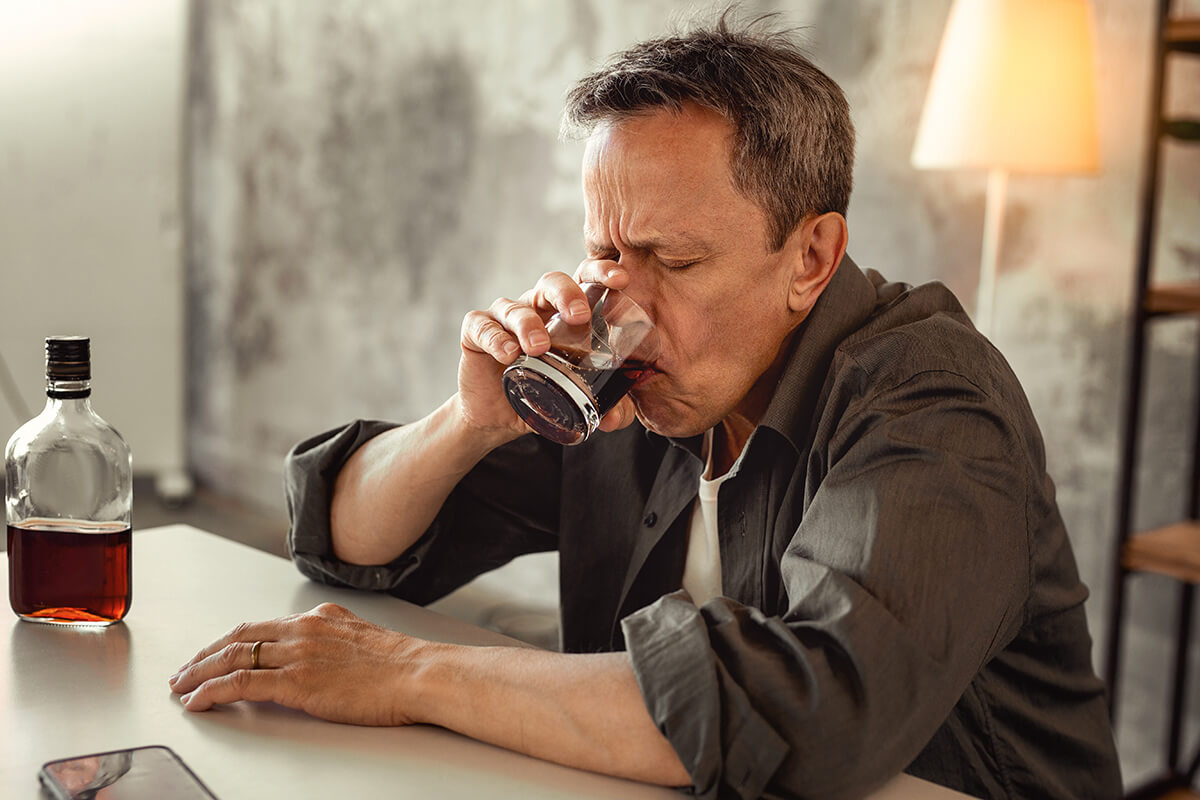It isn’t uncommon for individuals to use alcohol when they’re nervous or feeling down. In doing so, those individuals might feel better in the moment. That leads many to wonder, “Is alcohol a depressant?” What many may not realize about the beer, cocktail, or wine that they’re drinking is that it’s a depressant.
If you or a loved one is worried about using alcohol as a depressant and becoming dependent on the substance, it might be time to contact Midwest Detox Center. Call 833.647.0392 to speak with a specialist about alcohol detox programs in Ohio.
Is Alcohol a Depressant?
You might be wondering if alcohol is a depressant if you use it socially or have friends who do. The main reason this question might come up is that, when you’re out with friends, you might feel joyous or other exuberant feelings when using alcohol. That leads many to wonder if alcohol is a stimulant or depressant. There’s confusion here because, after a long day, some might turn to alcohol to raise their spirits.
Confusion regarding whether or not alcohol is a depressant or stimulant increases when we learn more about how alcohol affects our brain. Once alcohol reaches our brains, chemical changes occur, including:
- The body releases “feel good” chemicals, including serotonin and dopamine
- The release of the body’s “slow down” chemical, which is referred to as gamma-Aminobutyric (GABA)
- Reductions in the body’s “speedup” chemical release, which is referred to as glutamine
- Slowing of reflexes and speech, as well as the ability to process information
Understanding Alcohol as a Depressant vs. Stimulant
Trying to answer the question, “Is alcohol a depressant,” involves identifying it causes depression. Because of the name, it isn’t uncommon for people to believe that alcohol causes depression because it’s a depressant. Even though alcohol does “depress” an individual’s central nervous system, this substance doesn’t cause them to feel sadness when they drink.
Initially, alcohol use could lead to people experiencing pleasant feelings. These feelings typically occur because alcohol puts people at ease and relaxes them. The misuse of alcohol could lead to individuals feeling emotionally depressed, and, after prolonged or chronic use, it could lead to depression symptoms.
Alcohol Is Not a Stimulant
There’s a misconception that alcohol is a stimulant. The main reasons for that include feelings of euphoria, as well as lowered inhibitions, mood improvements, and an increase in confidence. Each of these is a pleasant experience that those who drink want to continue feeling.
When alcohol use releases dopamine, your brain’s “feel-good” neurotransmitter, that causes positive feelings. For some users, when they see an alcohol commercial or think about drinking, that releases dopamine. When some people take a single sip of alcohol, that could cause a spike in dopamine.
The Side Effects of Abusing Depressants
People can experience long and short-term effects when abusing depressants, including alcohol. Some of these side effects are treatable, but many are irreversible. Some examples of alcohol side effects include:
- Depression after prolonged use
- Dizziness and light-headedness
- Fatigue and slowed breathing
- Nausea and vomiting
- Low blood pressure and slowed heart rate
- Slurred speech and impaired motor functions
- Unconsciousness or death
The Dangers of Using Depressants
There are several dangerous consequences of using alcohol, especially when intoxication occurs. Because individuals have a lowering in their inhibitions, which could result in risky behavior. Individuals might also experience poor decision-making that would never occur when they’re sober.
During intoxication, individuals expose themselves to unintentional injuries and accidents. There’s also the chance of overdosing or death occurring. For example, if people overdose on alcohol and experience alcohol poisoning, that could lead to deadly results.
Receive Help Today at Midwest Detox Center
Answering the question, “Is alcohol a depressant,” involves taking a closer look at your alcohol use and how it’s affecting your body. In doing so, that could lead to concerns about your physical and emotional well-being. No one should have to experience these concerns without receiving the best possible help and treatment options. Our center provides the following services:
- Alcohol detox program
- Alcohol addiction treatment program
- Individual, group, and family therapy
- Men’s detox program
- Women’s detox program
Contact Midwest Detox Center at 833.647.0392 to learn more about treatments and how we can support you.







